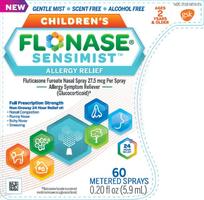The pediatric allergists who we’ve seen have said that all the allergy medications being used to treat children’s allergies are “very safe these days.” However, I like to double-check everything, including what the doctors say. Plus, to me, there’s a range of “safe” which I like to call risk reduction. Here’s what I found: there are in fact, nuances to the common allergy medications that are prescribed like Zyrtec and Benadryl, that are worth considering when deciding which to use and when. (If you want to try and reduce allergies without medications, see my posts on physically reducing allergens in your environment and also natural ways to minimize or treat your allergies.)
Best anti-histamine for kids: Zyrtec

For regular environmental allergies, Zyrtec seems to be the anti-histamine of choice. It’s the second fastest-acting (20 minutes – 1 hour) and lasts 24 hours. Benadryl apparently works the fastest, but its main ingredient has been linked to increasing risk of dementia. Many allergists no longer recommend Benadryl for kids at all. The Stanford clinical trials on OIT for peanut allergies used to require children to dose daily with Benadryl. When the studies came out about its link to dementia risk, they switched over to Zyrtec immediately.
Claritin takes longer to work (3 hours). Allegra, another popular choice, is shorter-acting and apparently less effective.
Anecdotally, on a Facebook group for children with allergies, some parents noted increased aggressive behavior and acting out during their child’s regular use of Zyrtec. They felt that symptoms resolved with the use of Allegra. I searched this briefly and found that allergy meds are sometimes linked to negative effect on behavior, although no one particular anti-histamine is blamed. It appears to depend on the child.
Our own pediatric allergist also recommended Zyrtec during our food allergy treatment, but did not have any particular reason for not recommending the others. If you’re looking for the quickest relief possible (and for one-off use) such as reaction to a food allergen, etc. then Benadryl might be your top choice. Also, according to our pediatric allergists, if you need the medication to get into your system faster, then choose liquid over tablet form. However, if your child needs the medication daily, then Zyrtec sounds like a safer choice.
Best nasal spray for kids: Flonase Children’s Sensimist

Two of our pediatric allergists recommended Children’s Flonase Sensimist (different formulation from the adult version). One pediatric allergist called it “super safe.” It appears to have the least amount of systemic absorption – which is what you want since you are mainly trying to treat nasal symptoms and want the drug to work locally. We were also warned to be sure and spray away from the nasal septum as spraying directly can damage the septum and cause nosebleeds.
Even with Flonase, it seems that the less you need to use it, the better. Studies have found that inhaled corticosteroids, like Flonase, can stunt a child’s growth.
Resources
One pediatric allergist’s ranking of allergy meds for children
Side effects of common children’s medications
- https://www.verywellhealth.com/side-effects-drug-side-effects-2633422
- https://www.webmd.com/alzheimers/news/20190624/commonly-prescribed-meds-could-raise-dementia-risk#1
- https://www.health.harvard.edu/blog/common-anticholinergic-drugs-like-benadryl-linked-increased-dementia-risk-201501287667
- https://pediatricinsider.wordpress.com/2019/11/24/what-do-current-guidelines-say-about-treating-allergies-with-benadryl/
- https://pediatricinsider.wordpress.com/2019/11/18/goodbye-benadryl-it-is-time-for-you-to-retire/
- https://www.todaysparent.com/kids/kids-health/benadryl-for-kids-unsafe/
Negative effect of anti-histamines on behavior
Corticosteroids can stunt growth
You must be logged in to post a comment.